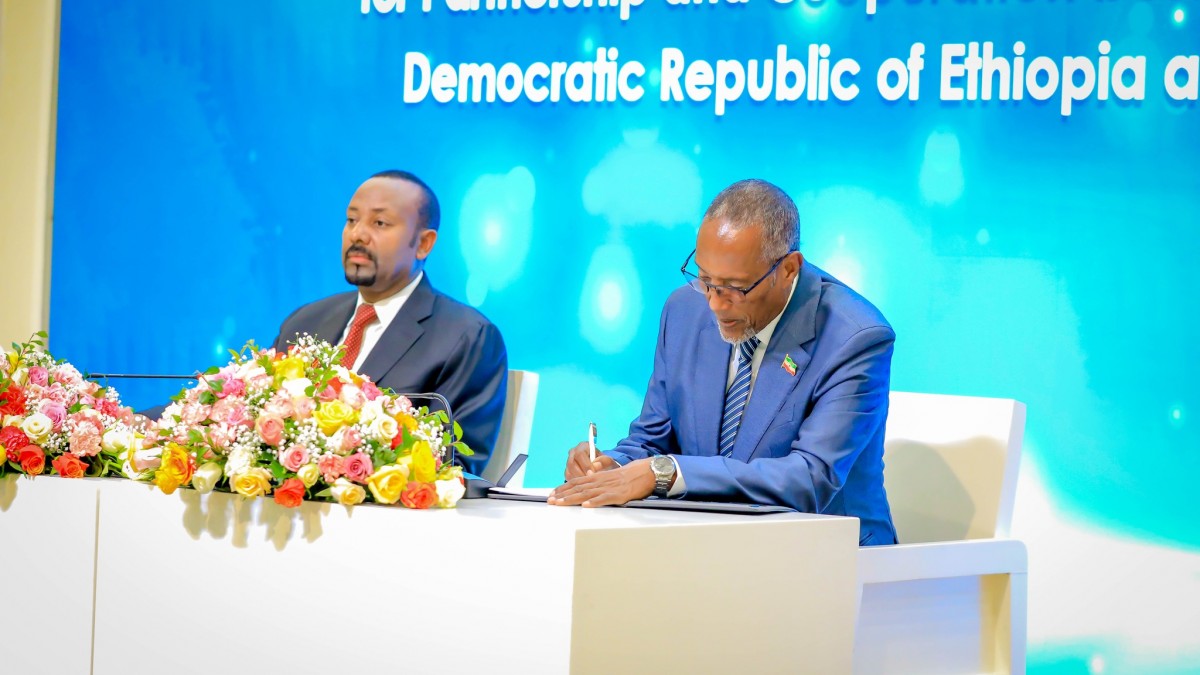
The internal challenges facing Somaliland and Ethiopia deal over sea gate access
The government of Somaliland and the Federal Government of Ethiopia signed a Memorandum of Understanding on 1 January 2024 at Addis Ababa, Ethiopia, to grant Ethiopia access to the Red Sea. The deal signed by the prime minister of Ethiopia, Abiy Ahmed, and the president of Somaliland, Muse Bihi Abdi, sent waves of shocks across the region and globally. Several countries issued statements, and the Arab League and the IGAD, the Horn of Africa regional block, announced extraordinary sessions to discuss the new development after the Government of Somalia asked. The African Union, the European Union, and world powers such as the United States of America and China issued statements in support of the "territorial integrity of Somalia.” The US was particularly upfront in its rejection of the deal.
Internally, the deal has raised questions in Somaliland. The signature of the MoU was a bombshell because there was no speculation before the deal was signed. In terms of Somaliland’s political system, the deal has three shortcomings that would challenge it.
First, President Muse Bihi Abdi, who has extended his five-year mandate, is unpopular. He lost to the opposition in the 2021 parliamentary and local council elections, where the opposition won 63% of the House of Representatives and five mayors out of the six main cities of Somaliland, including the capital, Hargeisa. President Muse Bihi Abdi was elected in the 2017 elections for a five-year term that ended in December 2022. He received a controversial two-year extension, a move rejected by the opposition and civil society. Protests against the extension resulted in the deaths and injuries of civilian protestors. The extension highly divided citizens after a prolonged political disagreement, election uncertainty, and violent conflict in the Sool region, where local clan militias took over from the military of Somaliland on 25 August 2023.
Second, after the Ethiopia-Somaliland deal was made, the government did not adopt a broad-based approach. " The government closely engaging and informs only the president’s sub-clan elites who are sentimental and divisive in defending the case and are intolerant with other critiques from uninformed elites,” says a government official who spoke anonymously due to the issue's sensitivity.
"As the region is in a proxy war, if you do not engage all your people equally, the neglected ones will be engaged and informed by your rivalries,” he added.
Third, when the deal was signed, Ethiopian officials made announcements and explanations of the deal. Somalia’s leaders speak to the media regularly. But the government of Somaliland is almost silent. It does not inform the public about the agenda and possible moves concerning the national interest. Therefore, there is an information gap between the government and citizens.

 0
0 


The internal challenges facing Somaliland and Ethiopia deal over sea gate access
Hargeisa- Somaliland and Ethiopia deal plays internally in Somaliland.